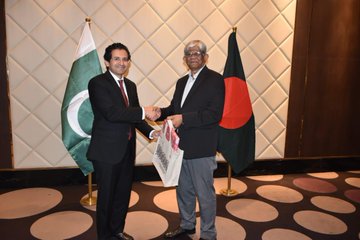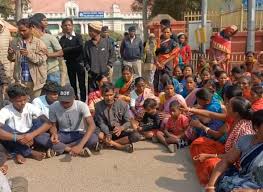As hostilities from the past have thawed, Bangladesh and Pakistan have re-established their Joint Economic Commission (JEC) for the first time in twenty years.
Islamabad showed special interest in buying jute at the conference, which took place in Dhaka on Monday. This comes as trade data shows that India will still be the biggest importer of raw jute from Bangladesh in 2023, with a transaction value of around $95 million.
India placed port restrictions on a variety of Bangladeshi jute products earlier in August. Officials defended the action by claiming that it was required to safeguard home businesses that were being harmed by Dhaka's export subsidies.
Bangladesh's export revenue from the jute industry fell to barely $3.4 million in July when India banned the import of jute products through land channels. This is a significant decrease from $12.9 million in the same month in 2024.
In response, Bangladesh blocked the import of yarn from India via the land ports of Benapole, Bhomra, Sonamasjid, Banglabandha, and Burimari.
The Pakistani delegation on Monday suggested permitting Bangladeshi companies to export jute goods from Karachi port. Salehuddin Ahmed, the finance adviser for Bangladesh, and Ali Pervaiz Malik, the petroleum minister of Pakistan, co-chaired the ninth session of the JEC, which was last held in 2005. Cooperation in trade, agriculture, information technology, energy, pharmaceuticals, and maritime transportation was explored by officials from both countries.
"This meeting is really crucial. Following the meeting, Ahmed told reporters, "We've resumed our economic dialogue with Pakistan after 20 years, and it has been very successful." "Both countries will gain from cooperation in fields such as agriculture, information technology, and maritime transportation."
The discussions were praised by Malik as a "milestone in rebuilding economic cooperation," with a focus on the necessity of "exploring new areas like agriculture, pharmaceuticals, and energy and expanding beyond jute."
The two parties decided to set up focal points in important ministries, such as maritime affairs and civil aviation, to keep an eye on developments and follow up on projects that were agreed upon. Although no precise trade goals were declared, both delegates characterised the talks as "constructive" and pledged to make real headway before the next JEC meeting.


.jpg)
.jpg)
.jpg)
.jpg)

